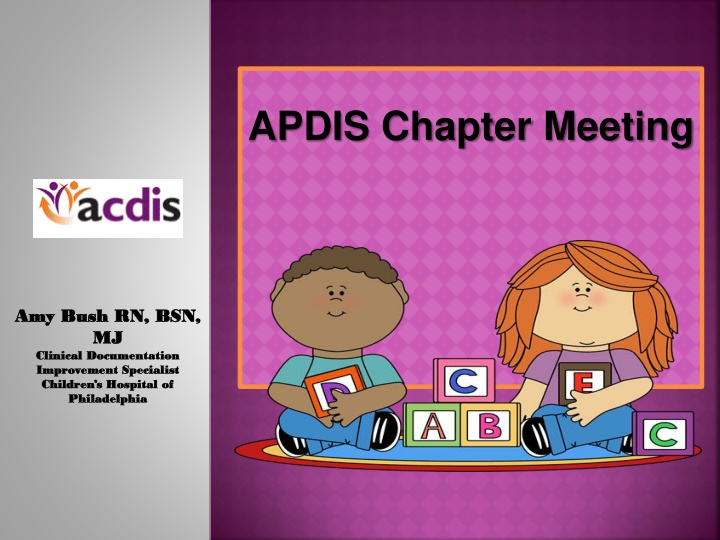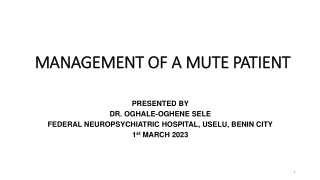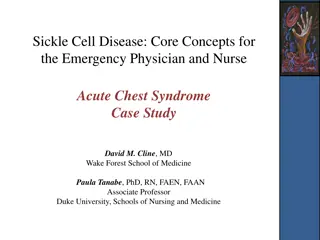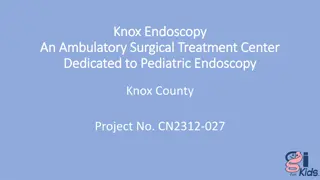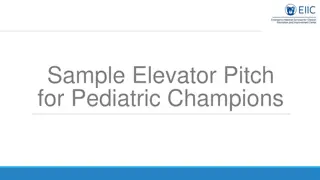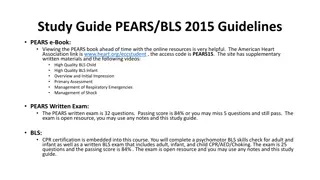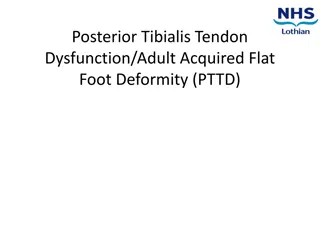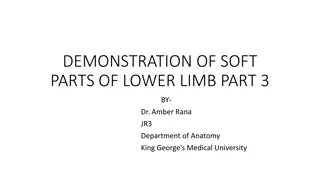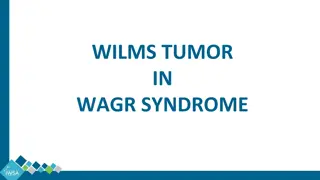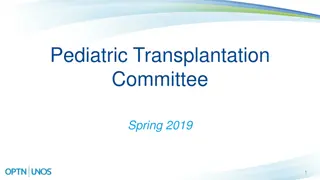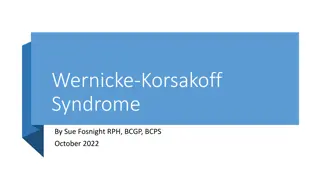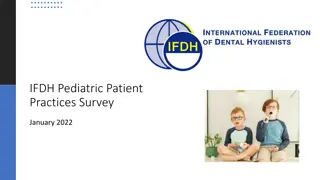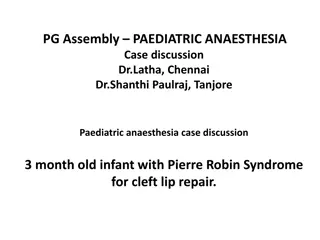Clinical Documentation Case Study: Posterior Fossa Syndrome and Mutism in Pediatric Patient
A case study of Kaye, a 3-year-old with a posterior fossa mass and obstructive hydrocephalus, highlights the importance of accurate clinical documentation. CDI queries to the physician clarified the distinction between posterior fossa mutism and syndrome, impacting coding accuracy and patient care outcomes. Understanding the nuances of diagnoses like compression of the brain and mutism is crucial for appropriate treatment and prognosis in pediatric patients.
Download Presentation

Please find below an Image/Link to download the presentation.
The content on the website is provided AS IS for your information and personal use only. It may not be sold, licensed, or shared on other websites without obtaining consent from the author.If you encounter any issues during the download, it is possible that the publisher has removed the file from their server.
You are allowed to download the files provided on this website for personal or commercial use, subject to the condition that they are used lawfully. All files are the property of their respective owners.
The content on the website is provided AS IS for your information and personal use only. It may not be sold, licensed, or shared on other websites without obtaining consent from the author.
E N D
Presentation Transcript
APDIS Chapter Meeting Amy Bush RN, BSN, Amy Bush RN, BSN, MJ MJ Clinical Documentation Clinical Documentation Improvement Specialist Improvement Specialist Children s Hospital of Children s Hospital of Philadelphia Philadelphia
CHOP AT A GLANCE Patients from more than 50 nations 546-beds with over 29,500 admissions 170,188 inpatient Days More than 40,000 annual inpatient and outpatient surgeries Over 96,000 annual Emergency Department visits More than 1.3 million outpatient visits More than 1 million square feet of research space, helping to bring bench discoveries to bedside quickly
CHILDRENS HOSPITAL OF PHILADELPHIA CDI PROGRAM Started in November 2014 Payer Mix is approximately 6% APR-DRG 46% Medicaid Remaining payers are per diem rate 3 Full time CDI specialist 1 Part time CDI specialist 1 physician advisor Under the leadership of the case management department
Kaye is a previously health 3 year old presenting with 5 days of emesis and new onset of seizures. She was diagnosed on imaging with a posterior fossa mass and obstructive hydrocephalus. Following surgery to remove the mass and perform an ETV, the patient was noted post operatively to have a constellation of symptoms including: mutism, dysphagia, ataxia; and, emotional lability. Documentation indicated that the patient had cerebellar mutism .
CDI query to the physician, requested clarification on whether posterior fossa syndrome, which includes this constellation of symptoms could be used interchangeably with posterior fossa mutism. Per the physician, posterior fossa mutism is not a diagnosis. Posterior fossa syndrome, the diagnosis indicated in this case, codes to G935 compression of brain and carries an SOI of 4, ROM 4. This condition is expected to be temporary and resolve over time. Mutism, which can also be a sequelae of brain tumor excision, can be temporary or permanent. However, the coding of mutism is to R4701 aphasia, which carries an SOI of 3, ROM1.
C716 Malignant neoplasm of cerebellum C716 Malignant neoplasm of cerebellum Principal Diagnosis G911 Obstructive hydrocephalus G911 Obstructive hydrocephalus 00B00ZZ Excision of brain, open G935 Compression of brain (posterior fossa syndrome) Secondary Diagnoses/ Procedures 00960ZZ Drainage of cerebral ventricle, open 00B00ZZ Excision of brain 00960ZZ Drainage of cerebral ventricle 02 CRANIOTOMY EXC FOR TRAUMA 02 CRANIOTOMY EXC FOR TRAUMA APR-DRG 2 3 Severity of Illness 1 3 Risk of Mortality Relative Weight 2.6860 (V.35) 4.1433 (V.35)
C716 Malignant neoplasm of cerebellum C716 Malignant neoplasm of cerebellum Principal Diagnosis G911 Obstructive hydrocephalus G911 Obstructive hydrocephalus 00B00ZZ Excision of brain, open R4701 aphasia (mutism) Secondary Diagnoses/ Procedures 00B00ZZ Excision of brain 00960ZZ Drainage of cerebral ventricle, open 00960ZZ Drainage of cerebral ventricle 02 CRANIOTOMY EXC FOR TRAUMA 02 CRANIOTOMY EXC FOR TRAUMA APR-DRG 2 3 Severity of Illness 1 1 Risk of Mortality 2.6860 (V.35) 4.1433 (V.35) Relative Weight
Alpha is a 20 month old with newly diagnosed acute myeloblastic leukemia. In addition to Alpha s new oncology diagnosis, as her work up continues and chemotherapy is started, her providers document risk for tumor lysis syndrome and the treatments aimed at preventing it. Labs are frequently drawn to monitor this condition. The next day, providers noted metabolic abnormalities of: hyperkalemia, hyperphosphatemia and hyperuricemia. CDI should query the provider to ask if, based on the documented lab values, another diagnosis assignment is indicated.
C9200 Acute myeloblastic leukemia C9200 Acute myeloblastic leukemia Principal Diagnosis D6959 secondary thrombocytopenia CD6959 secondary thrombocytopenia D630 anemia in neoplastic disease D630 anemia in neoplastic disease Secondary Diagnoses E883 Tumor lysis syndrome 690 ACUTE LEUKEMIA 690 ACUTE LEUKEMIA APR-DRG 2 3 Severity of Illness 2 3 Risk of Mortality Relative Weight 2.0927 (V.35) 4.0094 (V.35)
